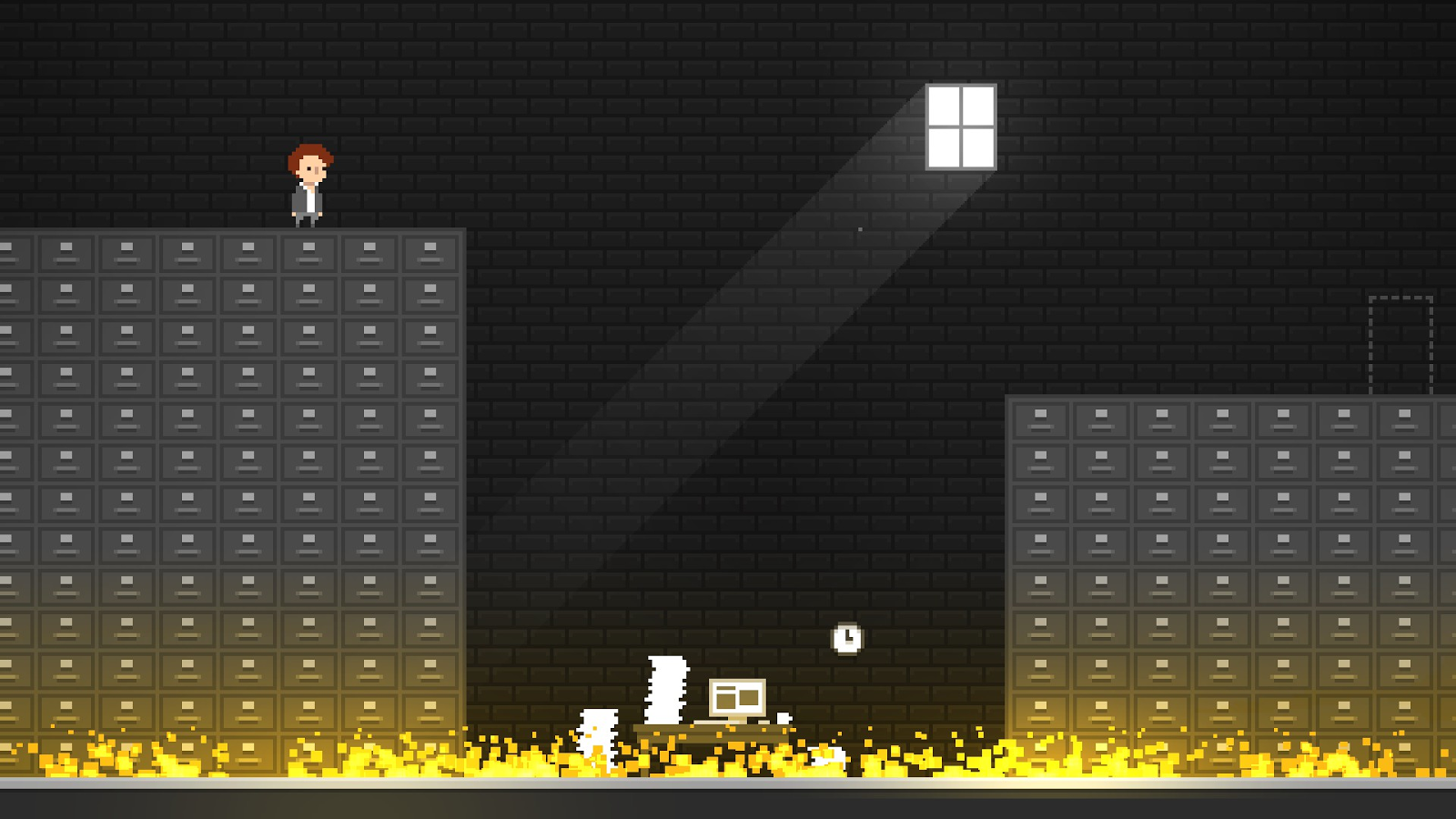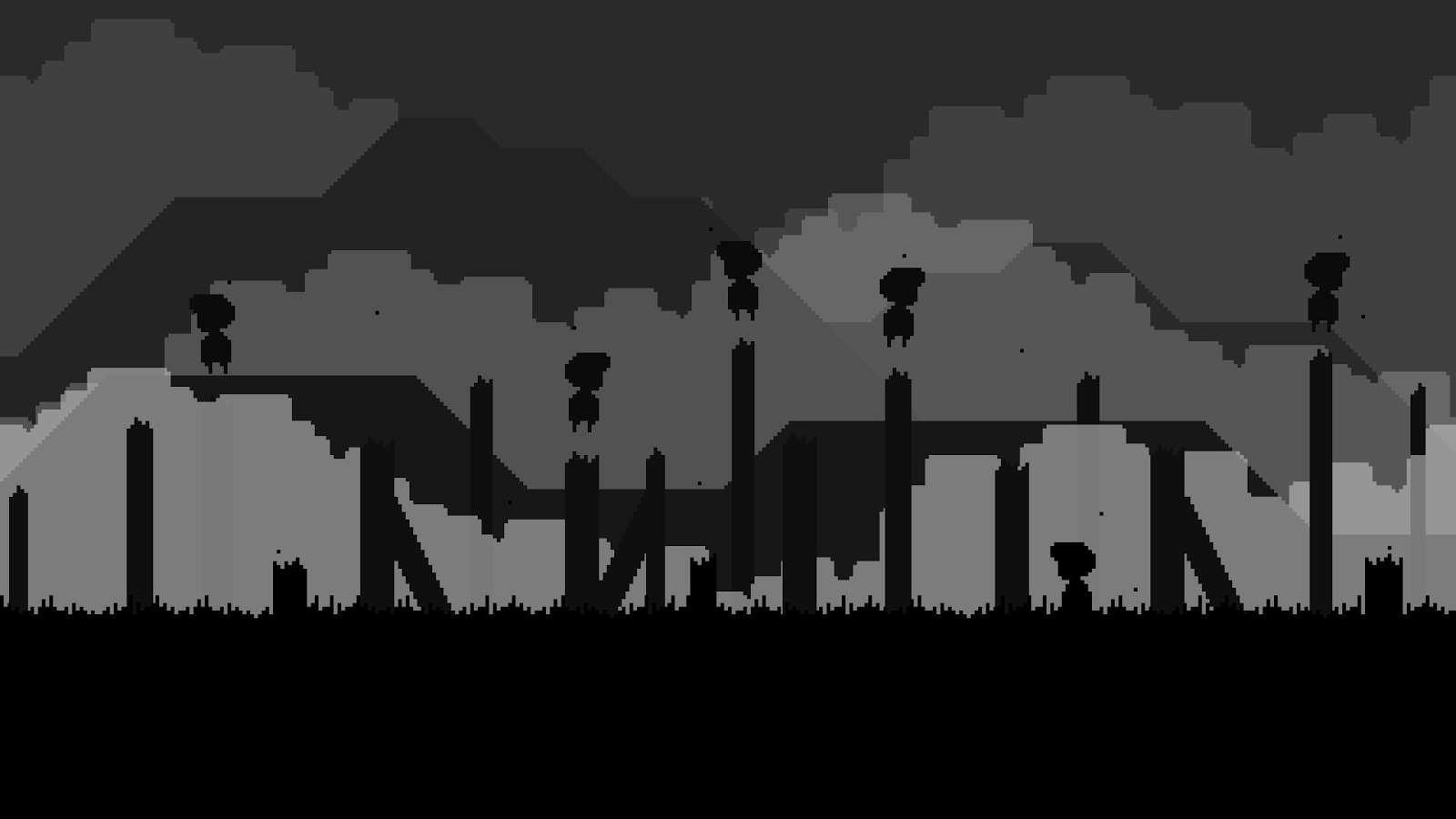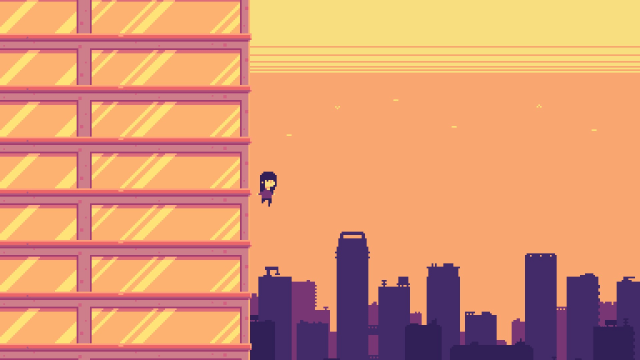I downloaded and played Indecision on a whim. The unassuming pixel art and straightforward presentation didn’t prepare me for all of the weird little platforming vignettes inside. It only took a few seconds for me to fall completely in love with it.
Had I read the game’s Steam page I would have had a better idea of what to expect. Bilge Kaan, a game developer in Istanbul who made Indecision in his spare time, describes it as a haiku platformer. “It’s short and vague,” he says. “You won’t feel like you achieve anything.”
The game is broken into individual scenes, most only lasting a minute or less with you taking control of a little pixel avatar standing somewhere on the screen. You can walk left, right and jump, and that’s it. One of the levels, or haiku to use Kaan’s framing, consisted of an office in a warehouse that was currently on fire. I paced back and forth for a moment with nowhere to go. A platform on the other side of the fire was too far away to reach. Then a prompt appeared on the screen. “You need energy to jump,” it read with an icon below offering me 100 energy in exchange for a dollar. A few moments later the game cut to a new scene. This happened to be one of Indecision‘s more straightforward levels.

Each level begins with a black screen and an innocent word in the lower left, and the connection to the subject matter is rarely clear. On some there’s the outline of a doorway you discover and can walk through to initiate the next vignette. I think this counts as “beating” it, although I have no idea what that means, whether it unlocks different, alternative levels; a special ending; or, as Kaan implies in the description, none of it even matters to begin with.
Haiku elucidate through concision. Their limited but regimented syllables give way to little epiphanies by way of sharp contrasts or punchy reversals between the mundane and the profound. “Hiroshima Day – / I believe there must be bones / Under the paved street” wrote the poet Shigemoto Yasuhiko, a survivor of the first atomic bombing. The subject matter of Kaan’s game isn’t world history but there’s still something sinister that lurks behind each of the puzzles and visual gags. One particularly short level is just you standing near a floating gold block that looks awfully similar to something from Super Mario Bros. Except instead of smashing open it breaks your head and the character bleeds out on the ground.

Kaan’s claim on Twitter and Reddit is that you can beat the game he took two years to make in about 20 minutes. It was closer to 40 in my case, although even after a second playthrough I still haven’t figured out most of the puzzles.
One lasted an especially long time, with no indication of what the game wanted me to do. Feeling stuck, I hit escape on my laptop to close it out. This revealed a pause screen consisting of your character in white across from a door on a platform surrounding by total darkness. I ran to the right, only to fall off the ledge and have the game automatically close. It has to be one of the most clever, allegorical “Quit Game” screens I’ve ever experienced. It’s also a perfect encapsulation of the game’s unique poetry.

Comments